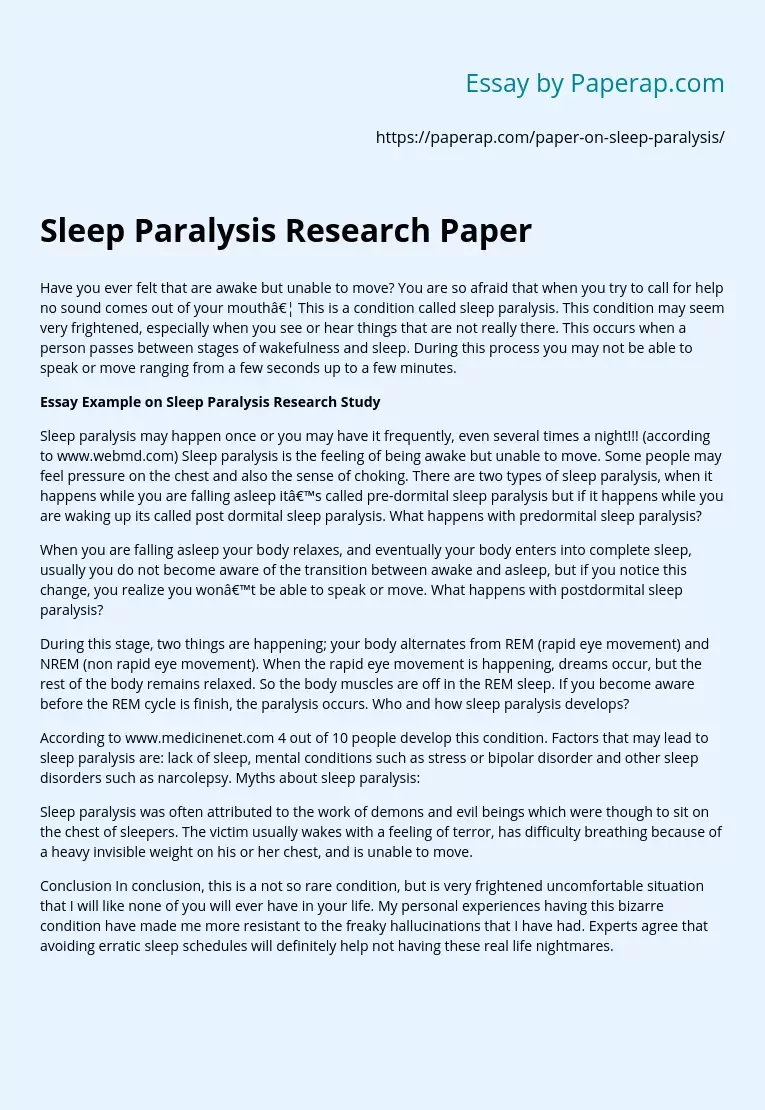Sleep Paralysis Research Study
Have you ever felt that are awake but unable to move? You are so afraid that when you try to call for help no sound comes out of your mouth… This is a condition called sleep paralysis. This condition may seem very frightened, especially when you see or hear things that are not really there. This occurs when a person passes between stages of wakefulness and sleep. During this process, you may not be able to speak or move to range from a few seconds up to a few minutes.
Sleep paralysis may happen once or you may have it frequently, even several times a night!!! (according to www.webmd.com) Sleep paralysis is the feeling of being awake but unable to move. Some people may feel pressure on the chest and also the sense of choking. There are two types of sleep paralysis, when it happens while you are falling asleep it’s called pre-digital sleep paralysis but if it happens while you are waking up its called post-digital sleep paralysis.
What happens with predormital sleep paralysis?
When you are falling asleep your body relaxes, and eventually your body enters into complete sleep, usually you do not become aware of the transition between awake and asleep, but if you notice this change, you realize you won’t be able to speak or move. What happens with postdormital sleep paralysis?
During this stage, two things are happening; your body alternates from REM (rapid eye movement) and NREM (nonrapid eye movement). When rapid eye movement is happening, dreams occur, but the rest of the body remains relaxed.
So the body muscles are off in the REM sleep. If you become aware before the REM cycle is finished, paralysis occurs. Who and how sleep paralysis develops?
According to www.medicinenet.com 4 out of 10 people develop this condition. Factors that may lead to sleep paralysis are lack of sleep, mental conditions such as stress or bipolar disorder, and other sleep disorders such as narcolepsy. Myths about sleep paralysis:
Sleep paralysis was often attributed to the work of demons and evil beings who were thought to sit on the chest of sleepers. The victim usually wakes with a feeling of terror, has difficulty breathing because of a heavy invisible weight on his or her chest, and is unable to move.
Conclusion In conclusion, this is a not so rare condition but is a very frightened uncomfortable situation that I will like none of you will ever have in your life. My personal experiences having this bizarre condition have made me more resistant to the freaky hallucinations that I have had. Experts agree that avoiding erratic sleep schedules will definitely help not having these real-life nightmares.
Sleep Paralysis Research Study. (2019, Nov 27). Retrieved from https://paperap.com/paper-on-sleep-paralysis/

